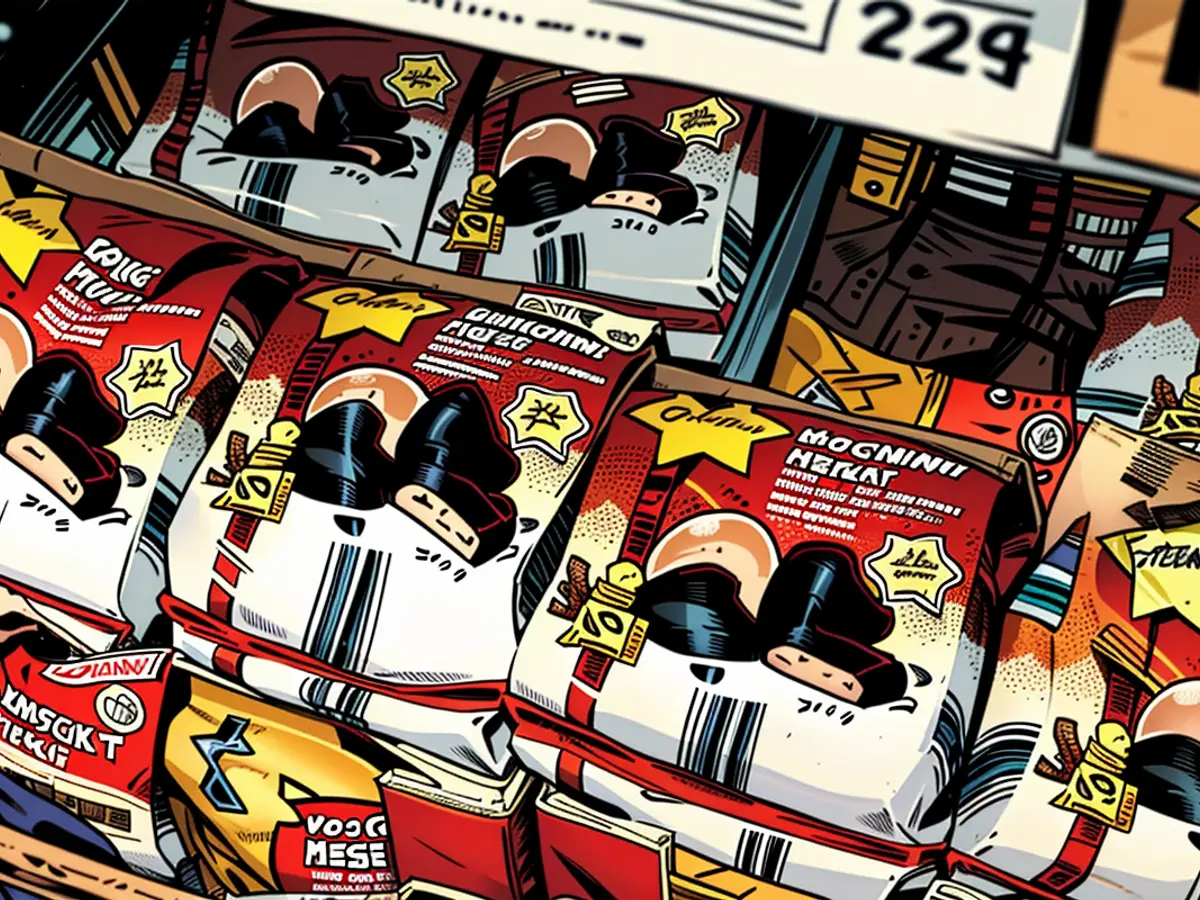- Unusual occurrence of gingerbread and conjectures taking place at 30-degree temperatures.
It's sweltering in Germany. Numerous locations are hitting temperatures of 30 degrees and beyond. It's almost four months until Christmas Eve, but the festive season is seemingly within grasp. Gingerbread and speculoos are now readily available in certain retailers' inventories.
This theme is divisive among customers. Two-thirds oppose early sales initiations in August, as revealed by a YouGov survey funded by the German Press Agency. Similarly, many shoppers only purchase Christmas treats such as gingerbread or cookies from supermarkets in November or December, with 14% buying them in October. Notably, only 10% buy the products early, with just 3% snapping them up in August. The question on why the merchandise is available so early has puzzled customers for years.
Asserts retail expert Andreas Kaapke from the Dual University of Baden-Württemberg in Stuttgart (DHBW), "supply creates its own demand." Retailers wouldn't stock these goods if they weren't profitable. However, data from the market research firm NIQ indicates minimal sales of Christmas treats in August during the previous three years. The sales surge commences in September instead.
"Consumers find it well-received"
Confirms Philipp Hennerkes, the managing director of the Federal Association of the German Food Trade, "there's a rise in interest for these items as the holiday season draws to a close." The gap between public sentiment and actual purchasing behavior is significant in certain sections. Hennerkes disavows the notion that these treats are in stock earlier each year.
"The timeframe hasn't changed in the past 25 years," states Rewe spokesman Andreas Krämer. Speculoos, printen, gingerbread, and stollen hit the shelves starting late August. A few weeks later, Christmas men, pralines, and advent calendars follow. According to Krämer, significantly more Christmas treats are sold in September and October than in December. The demand is high at the beginning, making a gradual decrease thereafter.
The discount store Aldi Nord adds gingerbread and domino stones to the inventory in late August. Kaufland follows suit. "Our clients anticipate Christmas all year round and want to indulge in cookies beyond the pre-Christmas period," they state. Norma even unveils their Christmas selection between early and mid-August. "In general, the Christmas assortment is already met with positivity across Germany," the company asserts.
Consumers lean towards gingerbread
The Lambertz Group began producing printen, gingerbread, and stollen in June. Every day, up to 10,000 pallets depart from its production warehouses. Overall, around 700 million dominosteine and 720 million gingerbread are manufactured. Numerous customers lament that the treats couldn't be enjoyed year-round. Interestingly, this is already possible in neighboring countries. According to the company, weather plays an integral role in sales. sales deteriorate if it's unusually warm in October and November.
Responds Bahlsen brand manufacturer to the query, "there's no flavor contrast between our products procured in September or December." As for preferences, consumers have remained steadfast in their loyalty to gingerbread, speculoos, and cookies, according to the YouGov survey.
Will Christmas treats cost more?
Another debatable topic scarcely contrasts with the pre-Christmas sentiment. Consumers have had to pay higher prices for various groceries recently. Key ingredients in Christmas treats have seen substantial price hikes. Sugar surged by 80% in July compared to 2020, as did wheat flour (+59.6%), cocoa powder (+42.3%), and chocolate bars or other chocolate products (+47.3%).
Are Christmas nibbles more expensive this year than last? Industry associations cite escalating costs, including energy and logistics, as potential contributing factors. They're evasive, however, regarding potential price increases. A Lambertz spokesperson anticipates exorbitant prices for chocolate-covered Christmas treats.
Many items were already costlier in 2023, as per figures from NIQ. The seasonal treats experienced increased sales due to higher prices, yet the volume sold and packs dropped by 8%. In 2022, merchants reported an average of 186 packs sold per week per establishment, compared to 171 in 2023. Remarkably, almost half of the sales were made through special offers.
Germans exhibit extreme price consciousness during their shopping sprees this year, with consumer morale remaining humble. However, the managing director of Lebkuchen Schmidt, Jürgen Brandstetter, remains hopeful. "Specially in these times, people aspire for a joyful Christmas."
Despite the sweltering summer temperatures, retailers like Rewe start stocking Christmas treats, such as speculoos and gingerbread, from late August. By September, sales of these items significantly increase, and by October, retailers like Norma have already unveiled their full Christmas selection.
As the holiday season approaches, consumers show a strong preference for traditional Christmas treats like gingerbread and speculoos. According to the Lambertz Group, they manufacture over 700 million gingerbread and dominosteine annually, with sales peaking in the early months leading up to Christmas.








